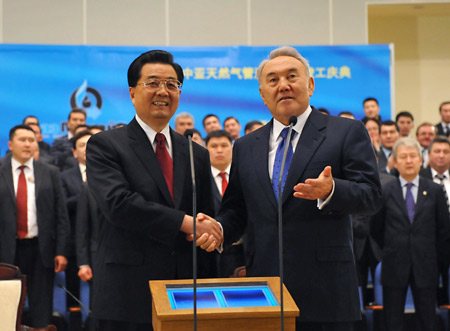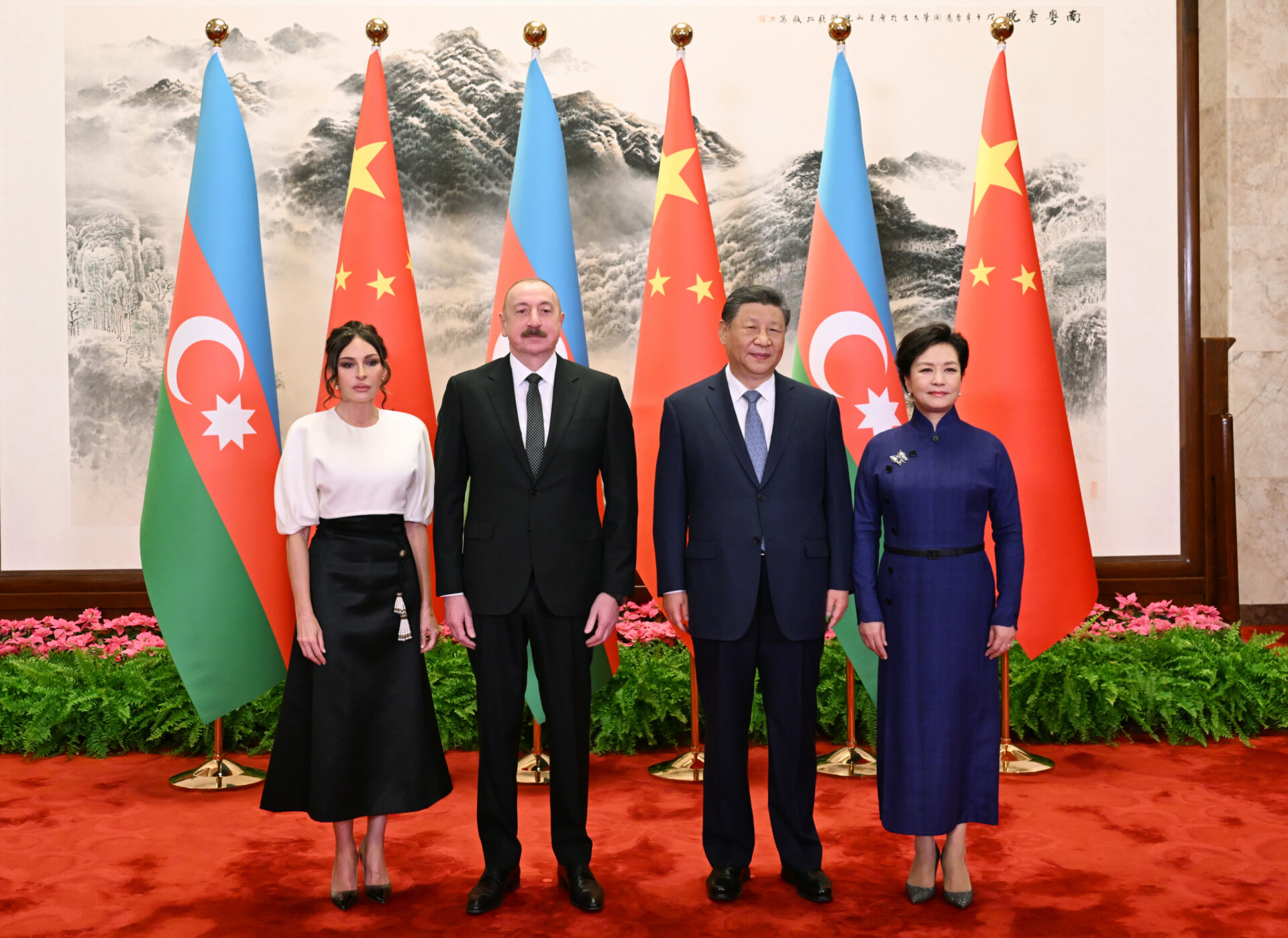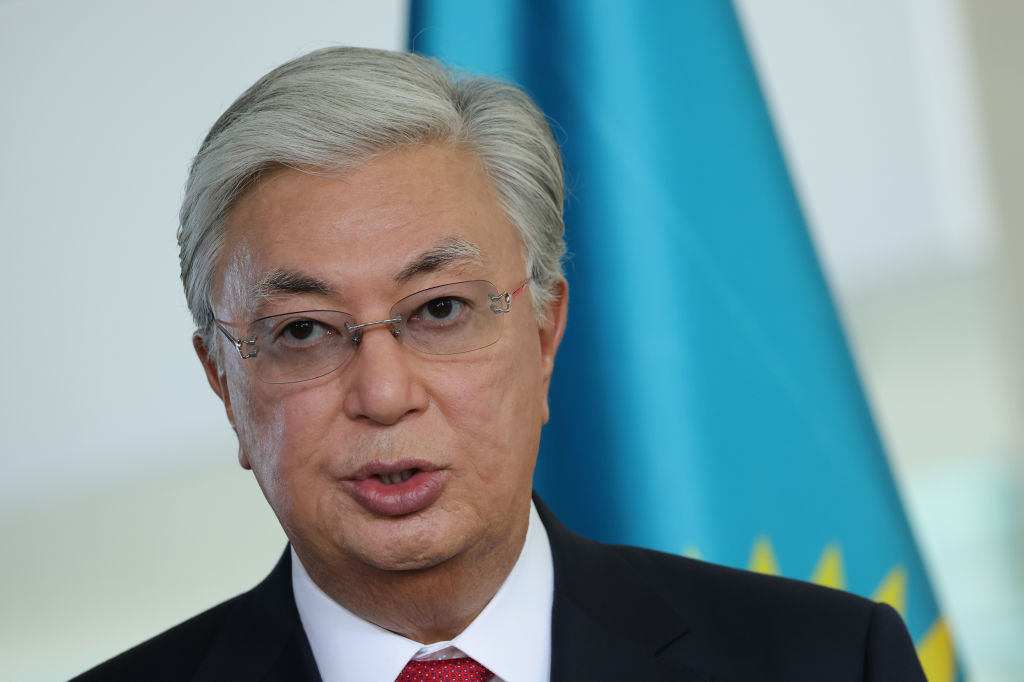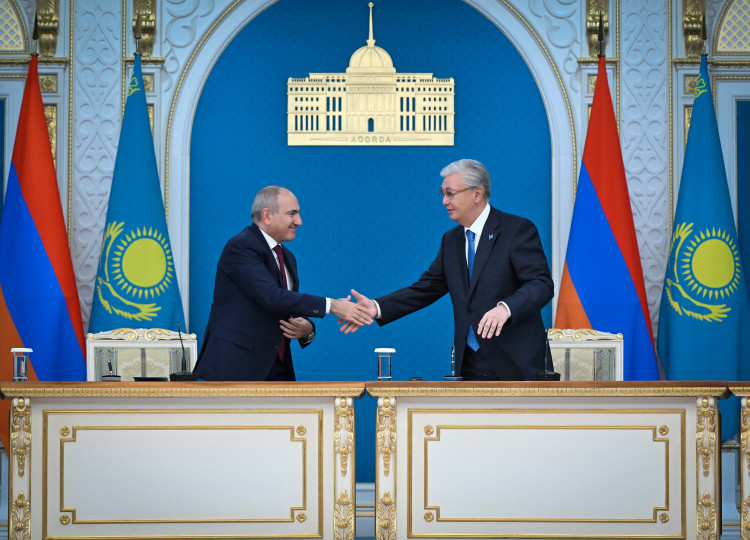
Rumors of Secret Land Lease to China Causes Unease in Kazakhstan
Rumors of Secret Land Lease to China Causes Unease in Kazakhstan
Kazakhstani people are generally not prone to air their political views in public. This is partly due to apathy, a fact regularly deplored by activists, and to some extent to fear of what the consequences might be. But the one topic that will raise people’s hackles is China and any perceived encroachment of the giant neighbor on Kazakhstan’s territory.
Rakhat Aliyev, the former son-in-law of President Nursultan Nazarbayev, knows all too well which buttons to push for his fellow countrymen to become indignant. He recently wrote in his blog from his self-imposed exile in Europe that Nazarbayev had reached a secret deal with the Chinese authorities on February 21 during a trip to China, under which Kazakhstan will lease 1 million hectares of land to China for a period of 99 years.
Aliyev could offer no proof stating that it would “put the life of the patriot who made a copy of the document in danger,” adding that a public announcement would be made by Astana after the April 3 presidential elections anyway (Radio Azattyq, March 9). Even so, it had the desired effect.
Two opposition parties – the “Alga! Party” and the Communist Party – denounced the alleged secret pact at a press conference in Almaty on March 9 and urged Nazarbayev to confirm or deny the report. “This is dangerous for the independence and sovereignty of Kazakhstan,” said Vladimir Kozlov, leader of the unregistered “Alga! Party,” suggesting that there was a high likelihood that Aliyev’s information was true, adding “We just want a simple answer to a simple question.”
If the pact exists, Kozlov believes that the land would not be leased to China in one big piece for use as farmland, but in many smaller parts leading to the formation of Chinese enclaves and the creation of smaller states within a state.
On the same day, the spokesperson of Kazakhstan’s ministry of foreign affairs, Askar Abdrakhmanov, categorically denied Aliyev’s claim saying it was “absolutely untrue and groundless” (Kazinform, March 9).
Nazarbayev’s political adviser, Yermukhamet Yertysbayev, also rejected the allegation saying it was “a deliberate lie” and “a provocation” by a state criminal aimed at getting dissatisfied people to take to the streets (Ekspress-k, March 4).
Aliyev, a former first deputy head of the Kazakh security service (KNB) and ambassador to Austria, was married to Nazarbayev’s oldest daughter Dariga until 2007, the year he began living in exile. He was sentenced by a Kazakh court in absentia to 40 years in jail for kidnapping, extortion, and treason in 2008. While he was part of Kazakhstan’s First Family, he was a deeply unpopular and feared man with a reputation for using tactics of intimidation. He has since been trying to rebrand himself as a democratic reformer who had to pay a high price for his political stand against Nazarbayev.
By all accounts, he continues to be well-connected and informed. He regularly embarrasses senior Kazakh officials by publishing their secretly recorded telephone conversations on the internet. Although there is no certainty that the alleged speakers are really who they are said to be, including Nazarbayev himself, the voices do sound very similar to the ones heard in public speeches. So far, only Gani Kasymov, a candidate for the upcoming presidential election, has openly said that the voice heard in one recording had been his (K-Plus TV station, March 6).
Aliyev has therefore gained some credibility with his statements, even though he is not widely trusted as a person. Kozlov said that Aliyev is probably following a strategy intended to pave the way for his ultimate return to Kazakhstan.
Moreover, Nazarbayev himself told a meeting of foreign investors in December 2009 that China had expressed an interest in renting 1 million hectares of Kazakh farmland. This gave rise to protests and rallies in the weeks that followed, and the land issue quietly disappeared.
As in the Russian Far East, China is purported by many in Kazakhstan to have expansionist tendencies that are clandestinely being driven by the increasing business of Chinese traders and oil companies on Kazakh territory.
Failing to receive a public response from Nazarbayev, the “Alga! Party” applied and – surprisingly – received permission to hold a demonstration in Almaty and a few other cities in the country on March 13. Around 400 people, many of them elderly, assembled in a small park on the outskirts of Almaty beneath the statue of Soviet leader Vladimir Lenin and called for a stop of the “Kitaiizatsiya” of Kazakhstan (Sinification). They also used the convenient opportunity to call for an election boycott, a stance the city authorities would probably not have allowed as readily as protests opposing China.


